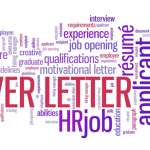By Sharon Florentine
CIO, May 25, 2017 —
Winning an interview in today’s competitive IT job market can feel like an accomplishment itself. But the real work has only just begun.
To be truly prepared for your next interview, you need to practice answering the hiring manager’s questions. But you don’t want to get lost preparing for questions that may not come; most recruiters and hiring managers stick to a slate of tried-and-true questions that help them get to the heart of who you are and what you can do for the company. And while they may seem bland on the surface, they can be tricky to answer. Here are the fifteen most common interview questions you’ll be faced with and how to approach them.

Credit: Tim Gouw via Pexels
1. Can you tell me a little about yourself?
This no-brainer is trickier than you think. You don’t want to wax poetic about your knitting hobby or your cat; nor do you want to launch into an unabridged employment history, says Rick Gillis, job search strategist, consultant, speaker, and author of Job! and Promote! Your work doesn’t speak for itself. You do.
Gillis recommends an accomplishments-based résumé that highlights the top four most impactful achievements to catch the eye of hiring managers; this is where you have the chance to talk those through in more depth.
“You want to show instances in the past where you’ve made a company money or saved a company money. Give a concise and compelling pitch about how you’ve added value,” Gillis says. Then, you can segue into how those accomplishments and experiences uniquely qualify you for the role.
2. How did you hear about the position?
Most employers feel referrals make the best hires, so they will inevitably ask you this question with an eye toward finding out who you may already know at the organization. Here’s where you should play up your connections to the company, says Dan Schawbel, partner and research director at Future Workplace. The recent Active Job Seeker Dilemma survey, from Future Workplace, a research firm and workforce management consultancy, and Beyond.com, a career and hiring marketplace, polled 4,347 U.S. job seekers and 129 HR professionals and found 71 percent of HR pros surveyed felt referrals were the best way to find candidates. Leveraging your network also signals to a potential employer that you have the necessary soft skills to succeed, Schawbel says.
“[Communication, networking, and teamwork] are skills that you need not just on the job, but for your entire life. People have to understand how this works — it doesn’t have to be a family member or a good friend, just someone you know. Figure out how to get some common ground and set up a lunch or a coffee date with them. Leverage that relationship to figure out how you can work together,” he says.
If you learned of the position through an event or article, or if you stumbled on the listing randomly, explain what it was about the position that caught your eye and why you’re the perfect candidate to fill the role.
3. What do you know about the company?
It’s vital to do your homework and research potential employers, but don’t stop with general information, says Gillis. Check out business publications, newspapers, even SEC filings (for public companies) to see what the company’s up to and to gauge not only their strategies and initiatives but the mission and values that drive them. Culture is a major differentiator, too, so make sure you have a sense of the company culture to know whether it would be a good fit.
“This kind of effort puts you at an advantage over other candidates, because it shows you’re knowledgeable about not just what the company is, but where it’s going. And then you can tailor your responses to make sure you fit into that growth pattern,” Gillis says.
4. What are your greatest professional strengths?
When employers ask this question, they are trying to gauge how your strengths may work to their advantage, or how you might fill in skills gaps the employer has. Here’s another opportunity to hammer home your accomplishments, skills, and experience, says Gillis. Tailor your responses not just to what you think the interviewer wants to hear, but to the kinds of responsibilities relevant to the role, he says. And that goes beyond generics like “communication.”
5. What do you consider to be your weaknesses?
It seems obvious, but don’t lead with “I’m always late” or “I don’t work well in teams”. Another no-brainer to avoid: “I don’t have any weaknesses.” The ideal answer here is one that shows you’re self-aware, understand where you struggle in a professional setting, and adds what you’re currently doing to improve on that weakness. For example, if public speaking isn’t your strong suit, but you’ve joined Toastmasters or another professional organization to sharpen your skills, that’s a great tidbit to share.
6. What is your greatest professional achievement?
This common question allows you the opportunity to highlight one specific accomplishment in greater depth. Ideally, you should back up your assertions with significant details about the challenges and obstacles you overcame and hard data about the impact you had at your company, says Gillis. If you need to, go back to your former employers and quantify how much time, resources, and revenue you saved or made.
“I had a client who went back to a former banking industry employer and discovered that a piece of software he’d written for them ended up saving the company millions of dollars and reallocated thousands of man-hours — freeing up personnel and resources. He was shocked! As much as you can, quantify and verify data like this; employers want to know how you’ll make them money or save them money,” Gillis says.
7. Tell me about a challenge or conflict you’ve faced at work, and how you dealt with it.
Work’s not all sunshine and rainbows. Conflict happens; challenges arise, and employers want to know how you’ll respond. How do you deal with personality clashes? How do you make or react to difficult decisions? The best way to answer this is to set up the situation, then explain how you took action and — preferably — how that situation was resolved satisfactorily.
8. Where do you see yourself in five years?
This question is as much about the potential employer’s succession planning as it is about you. It’s critical to have your own vision for where your career is going, says Schawbel, and how it will fit with the employers’ strategies going forward. Hiring managers want to know that you’re setting realistic goals for your career as well as gauge your ambition and whether or not the role aligns with your goals and your plan for growth. It’s an area companies are starting to pay greater attention to, according to the survey from Future Workplace on The Active Job Seeker Dilemma.
“If employees don’t see a path up, they will start looking for a path out. It’s in companies’ best interest to make sure they’re making their workers’ skills, experience, and interests a priority and to help them navigate and nurture a growth and development plan. It can help in areas like cultural fit, where companies often struggle — if you have great people within the company already, you have to do whatever you can to keep them, because it’s hard to find,” Schawbel says.
9. Why are you leaving your current job?
This is a tough one, to be sure, but you need to be honest and positive — whatever you do, don’t bash your past employers. Instead, craft a response that shows you’re eager to take on new opportunities and explain why and how this role and company is a better fit than previous positions. If you were let go or were laid off, that’s a perfectly acceptable answer.
10. Why were you fired?
If your termination wasn’t on the best of terms, this can be a brutal question to navigate. Again, be positive, don’t slam your previous employer, and remember that being fired doesn’t have to be a deal-breaker. Share what you’ve learned from the experience, how you’ve grown, and how the experience will shape how you will tackle your new job.
11. Why was there a gap in your employment?
In the mind of an employer, any gap in employment is seen as a negative, even in an unsteady economy. Address the issue directly and honestly, and then move on. Share what you’ve been doing during your unemployment — volunteering, taking classes, pursuing certifications, writing, speaking, blogging — and explain how and why those activities will benefit you in your new role.
12. Can you explain why you changed career paths?
Again, don’t think this will sink your chances for landing a new role. Explain why you made the career decisions you have made, and how your new direction is a better fit for you. You can also highlight the ways in which your previous experience is relatable and transferrable to your new potential role, Gillis says, making you a more versatile candidate who may be able to bring a fresh perspective.
13. What are your salary requirements?
This question’s extra tricky — and in some states, it’s even illegal. And it can be especially problematic for women and minorities, who don’t tend to negotiate as strongly as they should, and who often are offered a lower starting salary. You should do your homework on sites like Glassdoor and PayScale to find out what the expected salary range of the role is, and then aim for the highest part of that range that applies based on your skills, experience, and education. If you’re working with a recruiter, be honest with them about how much you are currently or were making, and leave the hard-nosed negotiations to them.
14. Are you planning on having children?
Questions about your marital/family status, sex/gender, nationality, religion, or age are illegal — but they still get asked. It might not be intentional or malicious, but if these questions come up, be prepared to redirect the conversation gently back to professional matters. You could say something like, “I’m not really thinking along those lines at this point in my career, but I’m very interested in learning about the potential for my professional growth at the company. Can you tell me more about that?”
15. Do you have any questions for us?
An interview should be a two-way conversation, so don’t squander your opportunity to ask questions that can help you decide whether the job is the right fit for you. What do you want to know about the position? The company? The department? The team? While many of these will be covered in the actual interview, have some unique questions in your back pocket, like, “What’s the best thing about working here?” “How long have you been at the company?” Or ask about new projects, products, initiatives, or strategies the company is pursuing — the ones you learned about when doing your homework.












